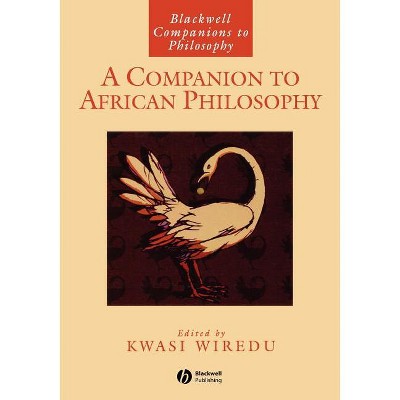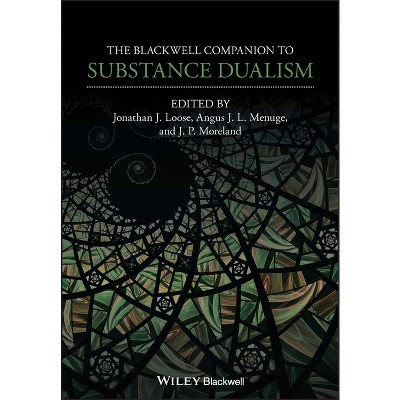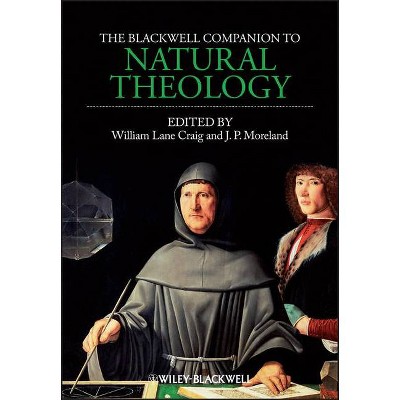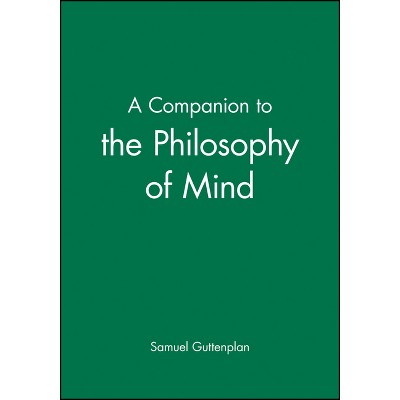Sponsored

A Companion to Hume - (Blackwell Companions to Philosophy) by Elizabeth S Radcliffe (Paperback)
In Stock
Sponsored
About this item
Highlights
- Comprised of twenty-nine specially commissioned essays, A Companion to Hume examines the depth of the philosophies and influence of one of history's most remarkable thinkers.
- About the Author: Elizabeth S. Radcliffe is Professor of Philosophy at The College of William and Mary.
- 592 Pages
- Biography + Autobiography, Philosophers
- Series Name: Blackwell Companions to Philosophy
Description
Book Synopsis
Comprised of twenty-nine specially commissioned essays, A Companion to Hume examines the depth of the philosophies and influence of one of history's most remarkable thinkers.- Demonstrates the range of Hume's work and illuminates the ongoing debates that it has generated
- Organized by subject, with introductions to each section to orient the reader
- Explores topics such as knowledge, passion, morality, religion, economics, and politics
- Examines the paradoxes of Hume's thought and his legacy, covering the methods, themes, and consequences of his contributions to philosophy
From the Back Cover
"An outstanding collection that will be both a guide for students and a stimulus to scholars. Elizabeth Radcliffe and her distinguished contributors cast fresh and clarifying light on each of the many topics they address."
Kenneth Winkler, Yale University
"Elizabeth Radcliffe has achieved a remarkable feat of editorial organization. This will be a major reference resource for those who want to see the main directions in which Hume studies are currently heading. Topics are well chosen. Contributors range from some of our most distinguished senior scholars to talented recruits from the rising generation."
M.A. Stewart, University of Aberdeen
"The essays are of uniformly high quality, and many are written by well-established, respected philosophers ... .David Hume is widely recognized as one of the most important and influential figures in modern philosophy. Every library should have a copy of this valuable resource, which will appeal to anyone interested in Hume's philosophy. Highly recommended."
(Choice)
David Hume's revolutionary philosophies took an empirical approach to the study of human nature. Controversial in his time, he was accused of everything from atheism to moral corruption; he has since been recognized as one of the foremost thinkers of the late modern period, influencing the thought of nearly every philosopher in his wake. The arguments presented in his writings have survived three centuries of varying perspectives, and have had a lasting influence on the philosophy of mind, knowledge, religion, action, morality, economics, and politics.
A Companion to Hume is the ideal resource for the study of one of history's most remarkable thinkers, demonstrating the range of Hume's work and illuminating the ongoing debates that they have generated. Comprised of twenty-nine expertly commissioned essays addressing such expansive topics of knowledge, passion, morality, religion, economics, and politics, this collection examines the paradoxes of Hume's thought and his legacy, covering the methods, themes, and consequences of his contributions to philosophy.
Review Quotes
"This is a superb collection of essays by both established Hume scholars and newer names in Hume studies . . . such books do this job very well and this one on Hume especially so: the reader is fortunate to have as guides, Louis Loeb on induction, Rachel Cohon on the passions, and Terence Penelhum on religion, to pick, as examples, just three of the excellent range of authors". (Metapsychology Online Reviews, 2011)
"Blackwell's fortieth Companion to Philosophy is a splendid and long-overdue Companion to Hume, expertly pulled together by Elizabeth Radcliffe, a former editor of the journal Hume Studies. Although the Blackwell Companions are promoted as a student reference series, this particular volume is clearly of considerable value to serious scholars as well." (Religion in the Age of Enlightenment, December 2010)"One distinctive feature of this Blackwell Companion to Hume is that it attempts to be more careful than is common with books of its sort to mark a distinction between explicating Hume's own ideas and arguments, and assessing their relevance to present-day philosophical discussion." (Notre Dame Philosophical Reviews, February 2009)
"[The book is] highly approachable, well-organized, and--in a field where a lot is published--a distinctive addition." (Reference Reviews, Issue 7 2008)
"The essays are of uniformly high quality, and many are written by well-established, respected philosophers.... David Hume is widely recognized as one of the most important and influential figures in modern philosophy. Every library should have a copy of this valuable resource, which will appeal to anyone interested in Hume's philosophy. Highly recommended." (Choice)
About the Author
Elizabeth S. Radcliffe is Professor of Philosophy at The College of William and Mary. She has published on the British Moralists and on Hume's metaethics and motivational psychology. She was co-editor of the journal Hume Studies, with Kenneth Winkler, from 2000 until 2005. She is currently working on issues surrounding the contemporary Humean theory of motivation and its connection to Hume.
Shipping details
Return details
Frequently bought together
Trending Non-Fiction

















